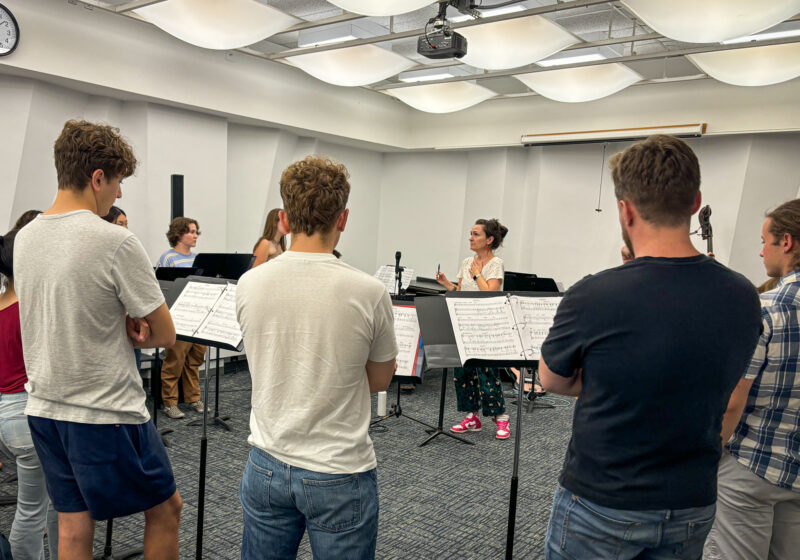What?s the first thing that comes to mind when you think of China? Fireworks? Dragons?
The color red? After spending last term there, I have one definitive image of the place:
people. Lots of them. 1.3 billion, actually. I know I didn?t quite meet them all, but I sure came close, whether riding the subway, jostling for restaurant tables or scampering across the
street.
Until you?ve actually lived in China, it?s difficult to comprehend the way the presence of so many people shapes nearly every aspect of Chinese life. Take, for example, waiting in line. The Chinese don?t believe in it. If you want train tickets, you have to shove your way to the front of the crowd and shout out what you want to the teller, or you?ll never get them.
The student cafeterias are the same ? if you?re quiet or polite, you don?t eat. Climbing on a bus usually means knocking gray-haired grannies out of your way and squeezing into intimate positions with total strangers.
To the average American, this behavior probably seems downright rude. But there?s a good reason for it ? for most of China?s history, the people have outnumbered the resources, plain and simple. One?s ability to get to the front of the crowd could quite literally mean the difference between life and death. Imagine waiting in a line where only the first half get fed, or where there?s only room for twenty people on the bus.
In America it?s usually taken for granted that if there are crowds you queue up and wait your turn, because we?ve grown up accustomed to knowing that if we?re patient, we?ll eventually get tickets, have our groceries rung up or get into the dining hall. But in China, that?s never been a sure thing.
Although China is light-years better than it was 20 years ago, in many instances the disparity between people and resources is still painfully obvious. For instance, the library of the university where I lived was nearly always packed ? it was half the size of Rush Rhees, but served a student body of roughly 20,000. Students would gather in the morning and rush in to claim a seat when the building opened, heading off to breakfast only when they were assured of a place to study for the day.
In addition, most of the classes contained hundreds of students. And the dorms were extremely crowded ? imagine six people living in an SBA double.
Having lots of people around all the time also presents a few unique social challenges. Dating, for example. It?s not easy to find a place to make out when everybody has five roommates. The solution at my university was to head for the middle of campus at night.
A stroll by the campus lake would reveal couple after couple whispering sweet nothings into each other?s ears, admiring the moon and trying to be intimate through parkas and gloves. It didn?t look easy.
If there?s one thing I learned to appreciate about the United States, it?s that we can have a little space to ourselves.
Living in China is rarely boring, but it?s also a little like being schizophrenic ? no matter where you are, you?re never really alone.





